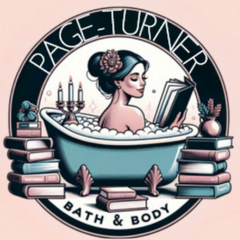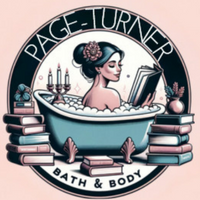Mad Hatter: Quotes and Their Deeper Meanings
"Have I gone mad?" asks the Hatter. If you haven't you should. Go mad with our Mad Hatter Bath Salts, where effervescent grape and soft florals create your own private tea party for the senses. Here, the logic dissolves, colors swirl, and wisdom lurks in each fragrant layer – just as in the words of the Mad Hatter himself.
The Mad Hatter from Lewis Carroll’s Alice’s Adventures in Wonderland isn’t simply a jumble of eccentric phrases; he’s a vessel of wisdom wrapped in whimsy. Let’s dive into some of his most memorable lines to see how his “madness” might be just what we all need.
“Really, now you ask me,” said Alice, very much confused, “I don’t think—” “Then you shouldn’t talk,” said the Hatter.
Here, the Hatter jolts Alice with his blunt advice: speak only if you think. It’s a playful push against idle chatter and a nod to Wonderland’s logic of thoughtful action – an invitation to savor the stillness, to listen. In the bath, let this idea dissolve the clutter of your day.
“Take some more tea,” the March Hare said to Alice. “I’ve had nothing yet,” Alice replied, “so I can’t take more.” “You mean you can’t take less,” said the Hatter: “It’s very easy to take more than nothing.”
A reminder that Wonderland holds space for absurdity. Sometimes, letting go of control (and logic) is the purest form of relaxation. As you soak in the Mad Hatter Bath Salts, give yourself over to the nonsensical beauty of “more than nothing.”
“You used to be much more… muchier. You’ve lost your muchness.”
The Hatter’s playful reminder to Alice (and us all) to hold on to our spark, our “muchness.” It’s an urging to reconnect with your authentic self, that radiant, bold spirit. Sink into the bath and reclaim that “muchness” – no matter how it’s been hidden away.
Mad Hatter: “Have I gone mad?” Alice: “I’m afraid so. You’re entirely bonkers. But I’ll tell you a secret. All the best people are.”
This delightful exchange reveals madness as a strength, a quality of the extraordinary. Embrace your quirks, celebrate the eccentricities. Let each swirl of color and scent remind you: you’re one of “the best.”
“It’s not a birthday party; it’s an unbirthday party.”
The Hatter finds celebration in any moment, because, why wait? The unbirthday teaches us to find joy in ordinary days – even baths can be a cause for celebration, especially baths with Mad Hatter Bath Salts . Every bath can be an escape, a pause just for you and a perfect way to celebrate an unbirthday.
“Have you guessed the riddle yet?” the Hatter asked. “No, I give it up,” Alice replied: “What’s the answer?” “I haven’t the slightest idea.”
Sometimes, questions are more satisfying than answers. So sink in, let the questions swirl, and enjoy the riddle without needing resolution.
In Wonderland, everything has an underlying meaning, waiting to bubble up. The Hatter's quips invite you to relish the mystery, to let curiosity and playfulness rise like the scent of grape and rose. Draw a bath as mad as the Hatter himself, let go, and allow yourself to be a little "bonkers." All the best people are.
🫖 Ready for Your Own Mad Tea Party? 🫖
Two Ways to Join the Madness:
- Transform Your Bath into Wonderland → Shop Mad Hatter Bath Salts ($22)
- Effervescent grape & rose blend
- Color-changing bath magic
- Perfect for your own mad tea party
- Shop Now
- Join Our Wonderland Society → Subscribe to receive: ✧ Products that make you happy to be mad ✧ More insights into Wonderland ✧ Special offers for fellow mad ones


Leave a comment